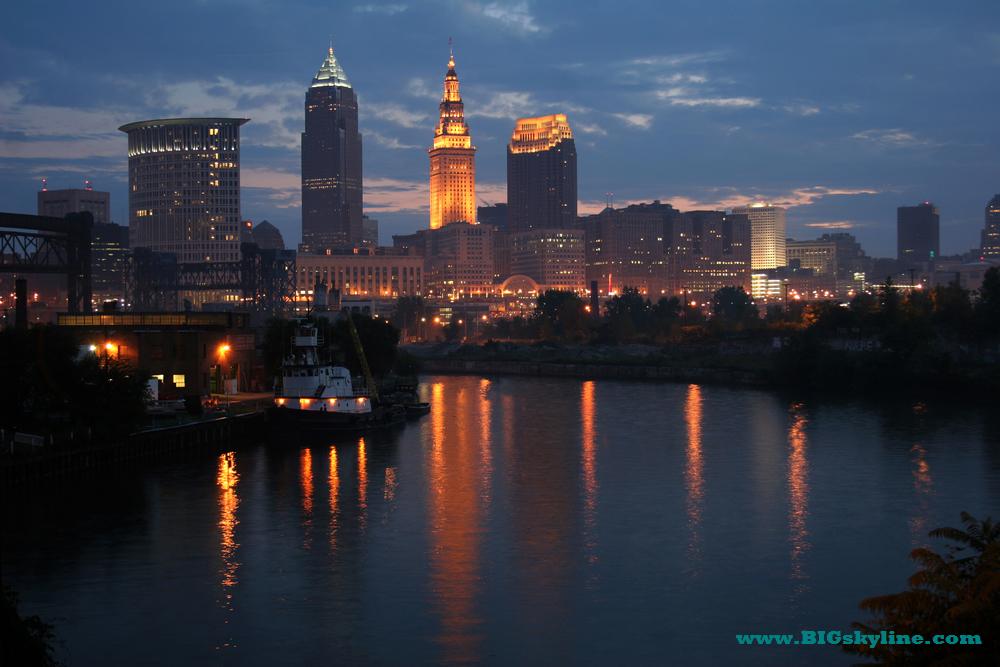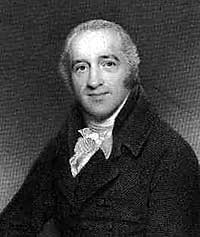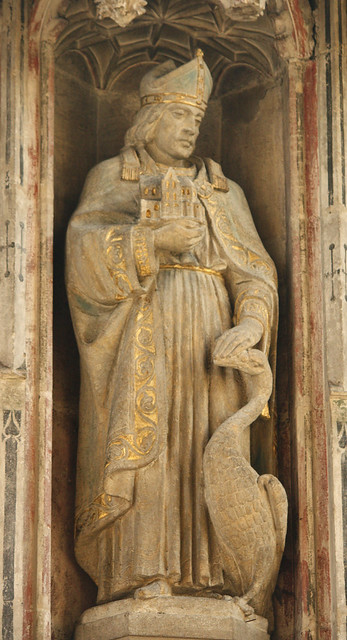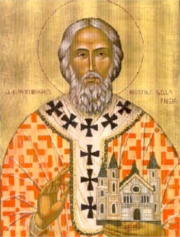





Occasional Holy Man and Luthier Who Offers Stray, Provocative, and Insouciant Thoughts About Religion, Archaeology, Human Foible, Surfing, and Interesting People. Thalassophile. Nemesis of all Celebrities [except for Chuck Norris]. He Lives Vicariously Through Himself. He has a Piece of Paper That Proves He's Laird of Glencoe.

Moses never celebrated Chanukah. Neither did King David or Jeremiah. But Jesus did! http://t.co/LkEip07ett
— Jeff Jacoby (@Jeff_Jacoby) November 28, 2013The tips including asking your family and guests coming over for the holiday to bring the information they'd need to sign up for Obamacare, because it's absolutely not awkward at all to tell someone you'd like him to bring wine and oh, his social security number and annual salary, too. You're advised to bring up Obamacare during "family time … downtime after meals or between holiday activities." Perfect: When your family is curled up in chairs in a turkey/stuffing/pumpkin pie-induced stupor, you can cut off the idle reminisces about bygone days and football and kids saying the cutest things, and launch that super festive health-care conversation that's sure to have everyone bursting into a rollicking round of kumbaya, despite that pesky little fact that poll after poll shows the country is sharply divided on this issue.

Football Banquet. Ivy League Championship Trophy! pic.twitter.com/i6Ct423wnJ
— Princeton Football (@PUTigerFootball) November 24, 2013
Here is the video from yesterday's big win! https://t.co/g1HVv3iS66
— Princeton Football (@PUTigerFootball) November 17, 2013



In 869, the Great Heathen Army advanced on East Anglia and killed Edmund. He may have been slain by the Danes in battle, but by tradition he met his death at an unidentified place known as Haegelisdun, after he refused the Danes' demand that he renounce Christ: the Danes beat him, shot him with arrows and then beheaded him, on the orders of Ivar the Boneless and his brother Ubbe Ragnarsson. According to one legend, his head was then thrown into the forest, but was found safe by searchers after following the cries of a wolf that was calling, "Hic, Hic, Hic" – "Here, Here, Here".Besides, any story that includes organizations such as the "Great Heathen Army" and characters like "Ivar the Boneless" is bound to be memorable.

The letter was occasioned by a dispute in Corinth, which had led to the removal from office of several presbyters [an early name for "priest" - ed.] Since none of the presbyters were charged with moral offences, Clement charged that their removal was high-handed and unjustifiable. The letter was extremely lengthy — it was twice as long as the Epistle to the Hebrews — and includes several references to the Old Testament, of which he demonstrates a knowledge. Clement repeatedly refers to the Old Testament as Scripture.It appears, at least according to the world view found in the First Letter of Clement to the Corinthians, that the most compelling scripture for the very earliest Christian church was that of the epistles, as the Gospels are never directly quoted.
New Testament references include Clement’s admonition to “Take up the epistle of the blessed Paul the Apostle” (xlvii. 1) which was written to this Corinthian audience; a reference which seems to imply written documents available at both Rome and Corinth. Clement also alludes to the epistles of Paul to the Romans, Galatians, Ephesians, Philippians and the first epistle to the Corinthians; numerous phrases from the Epistle to the Hebrews, and possible material from Acts, James, and I Peter. In several instances, he asks his readers to “remember” the words of Jesus, although Clement does not attribute these sayings to a specific written account. These New Testament allusions are employed as authoritative sources which strengthen Clement’s arguments to the Corinthian church, but Clement never explicitly refers to them as “Scripture”.
Ivy Champs! pic.twitter.com/IeZZ8gy0Gu
— Princeton Football (@PUTigerFootball) November 16, 2013
ESPN has been here all week preparing for Princeton vs. Yale pic.twitter.com/XsPkKKtorA
— Princeton Football (@PUTigerFootball) November 15, 2013


Can you imagine how the media would treat any other church body as litigious against dissenters as the Episcopal Church?
— Mollie (@MZHemingway) November 11, 2013
FB: @PUTigerFootball's Epperly named Offensive POTW for the 4th straight week. https://t.co/ACQfvRwVGR pic.twitter.com/WxlBKpSuJF
— The Ivy League (@Ivy_Athletics) November 11, 2013


A crucial date for members of the Episcopal Church in the United States of America is the consecration of the first Bishop of the Anglican Communion in the United States. During the colonial era, there had been no Anglican bishops in the New World; and persons seeking to be ordained as clergy had had to travel to England for the purpose. After the achievement of American independence, it was important for the Church in the United States to have its own bishops, and an assembly of Connecticut clergy chose Samuel Seabury to go to England and there seek to be consecrated as a bishop. However, the English bishops were forbidden by law to consecrate anyone who would not take an oath of allegiance to the British Crown. He accordingly turned to the Episcopal Church of Scotland. When the Roman Catholic king James II was deposed in 1688, some of the Anglican clergy (including some who had been imprisoned by James for defying him on religious issues) said that, having sworn allegiance to James as King, they could not during his lifetime swear allegiance to the new monarchs William and Mary. Those who took this position were known as non-Jurors (non-swearers), and they included almost all the bishops and clergy of the Episcopal Church in Scotland. Accordingly, the monarchs and Parliament declared that thenceforth the official church in Scotland should be the Presbyterian Church. The Episcopal Church of Scotland thereafter had no recognition by the government, and for some time operated under serious legal disablities. However, since it had no connection with the government, it was free to consecrate Seabury without government permission, and it did. This is why you see a Cross of St. Andrew on the Episcopal Church flag. In Aberdeen, 14 November 1784, Samuel Seabury was consecrated to the Episcopate by the Bishop and the Bishop Coadjutor of Aberdeen and the Bishop of Ross and Caithness. He thus became part of the unbroken chain of bishops that links the Church today with the Church of the Apostles.We give you thanks, O Lord our God, for your goodness in bestowing upon this Church the gift of the episcopate, which we celebrate in this remembrance of the consecration of Samuel Seabury; and we pray that, joined together in unity with our bishops, and nourished by your holy Sacraments, we may proclaim the Gospel of redemption with apostolic zeal; through Jesus Christ our Lord, who lives and reigns with you and the Holy Spirit, one God, now and for ever. Amen.
In return, he promised them that he would do his best to persuade the American Church to use as its Prayer of Consecration (blessing of the bread and wine at the Lord's Supper) the Scottish prayer, taken largely unchanged from the 1549 Prayer Book, rather than the much shorter one in use in England. The aforesaid prayer, adopted by the American Church with a few modifications, has been widely regarded as one of the greatest treasures of the Church in this country.

Margaret was the grand-daughter of Edmund Ironside, King of the English, but was probably born in exile in Hungary, and brought to England in 1057. After the Norman Conquest in 1066, she sought refuge in Scotland, where about 1070 she married the King, Malcolm III. She and her husband rebuilt the monastery of Iona and founded the Benedictine Abbey at Dunfermline. Margaret undertook to impose on the Scottish the ecclesiastical customs she had been accustomed to in England, customs that were also prevalent in France and Italy. But Margaret was not concerned only with ceremonial considerations. She encouraged the founding of schools, hospitals, and orphanages. She argued in favor of the practice of receiving the Holy Communion frequently. She was less successful in preventing feuding among Highland Clans, and when her husband was treacherously killed in 1093, she herself died a few days later (of grief, it is said).O God, you called your servant Margaret to an earthly throne that she might advance your heavenly kingdom, and gave her zeal for your Church and love for your people: Mercifully grant that we who commemorate her this day may be fruitful in good works, and attain to the glorious crown of your saints; through Jesus Christ our Lord, who lives and reigns with you and the Holy Spirit, one God, for ever and ever. Amen

As a sign of his remorse for his role in the murder of the Archbishop Thomas a Becket, King Henry II founded the first house in England of the strict monastic order called the Carthusians. Difficulties arose with the first two priors, and a French noble recommended Hugh de Avalon, who at that time had been a monk at the mother house of the order for 17 years.
On his arrival in England in 1176, Hugh found that the building of the monastery had not begun. Worse, no compensation had been paid to those who would have to lose their lands and property to make room for it. Hugh refused to take office until these persons had been paid "to the last penny." He intervened again on behalf of the builders, whose pay was not forthcoming. Henry loved him for his plain speaking. "I do not despair of you," Hugh said to him at their first interview; "I know how much your many occupations interfere with the health of your soul." Henry, impressed by his frankness, swore that while he lived he should not leave his kingdom, and took so much pleasure in his conversation, and paid so much heed to his counsels, that a rumor arose that Hugh was his son. Hugh's biographer wrote that "of all men only Hugh could bend that rhinosceros to his will."
When Henry was in danger of shipwreck, he cried out, "If only my Carthusian Hugh were awake and at prayer, God would not forget me." This affection never diminished, though Hugh dared to oppose the king, particularly in the matter of keeping bishoprics vacant in order that their revenues might fall to the king's treasury.
One of the worst examples was Lincoln, which, except for a few months, had been without a bishop for eighteen years. Hugh was elected to the post in 1186, and his monastic superiors ordered him to accept. After so long a period of neglect, there was great need of reform. Hugh employed priests of great piety and learning, and made the fullest use of his authority in disciplining his clergy.
He took a stern view of the ill-treatment of the poor by the royal foresters, and when a subject of the church of Lincoln suffered at their hands he excommunicated their chief. He also refused to appoint a royal favorite to a meaningless but lucrative post. Henry was furious, and summoned him to his presence. He came, and Henry turned away his face and would not speak, but by way of ignoring his presence took out a torn glove and began to sew it. At last Hugh said, "How like you are to your relations at Falaise." The king might have resented this allusion to the humble birth of William the Conqueror's mother, the daughter of a glove-maker, but he only laughed, and the quarrel was made up.
Riots against the Jews broke out in England at the time of the Third Crusade. In defence of the persecuted, Hugh faced armed mobs in Lincoln, Stamford and Northampton and compelled their submission. Hugh refused to raise money for the foreign wars of King Richard the Lion-Heart, calmed the king's rage with a kiss, and persisted in his refusal: this was the first clear example on record of the refusal of a money-grant demanded directly by the crown, and an important legal precedent. Richard said, "If all bishops were like my lord of Lincoln, not a prince among us could raise his head against them."
His relations with King John were less happy. John showed him an amulet, which he said was sacred and would preserve him. Hugh replied, "Do not put your trust in lifeless stone, but only in the living and heavenly stone, our Lord Jesus Christ." The following Easter he preached at length on the duties of kings, and the king slipped out partway through.
Devout, tireless, and forgetful of self, Hugh also had wit, a temper that he described as "more biting than pepper," and a great love and concern for children and the defenceless. He visited leper-houses and washed the ulcerous limbs of their inmates. He was fond of animals, and they of him. Birds and squirrels came readily to his hand. He had a swan that would feed from his hand, follow him about, and keep guard over his bed, so that no one could approach it without being attacked.
In 1200 the king sent him on an embassy to France. His mission was a success, but he took ill and returned to England to die on 16 November 1200. John Ruskin called him "the most beautiful sacerdotal (priestly) figure known to me in history."O holy God, you endowed your servant and bishop Hugh of Lincoln with wise and cheerful boldness, and taught him to commend the discipline of holy life to kings and princes: Grant that we also, rejoicing in the Good News of your mercy, and fearing nothing but the loss of you, may be bold to speak the truth in love, in the name of Jesus Christ our Redeemer; who lives and reigns with you and the Holy Spirit, one God, for ever and ever. Amen
Victory formation. We win!!! 38-26 best formation in football!!
— Princeton Football (@PUTigerFootball) November 9, 2013

Dudes in Guy Fawkes masks hanging around by the Episcopal Church down the street. Tickles my funny bone for reasons they'll never grasp.
— Sonny Bunch (@SonnyBunch) November 6, 2013
BROWNS WIN!! Visit http://t.co/AkIMoiYX8q & stock up on party supplies for the next game! http://t.co/W869X3U6da pic.twitter.com/KDNH8DFcmt
— Cleveland Browns (@Browns) November 4, 2013


After big win 53-20 over Cornell pic.twitter.com/BLzODV1JDN
— Princeton Football (@PUTigerFootball) November 2, 2013